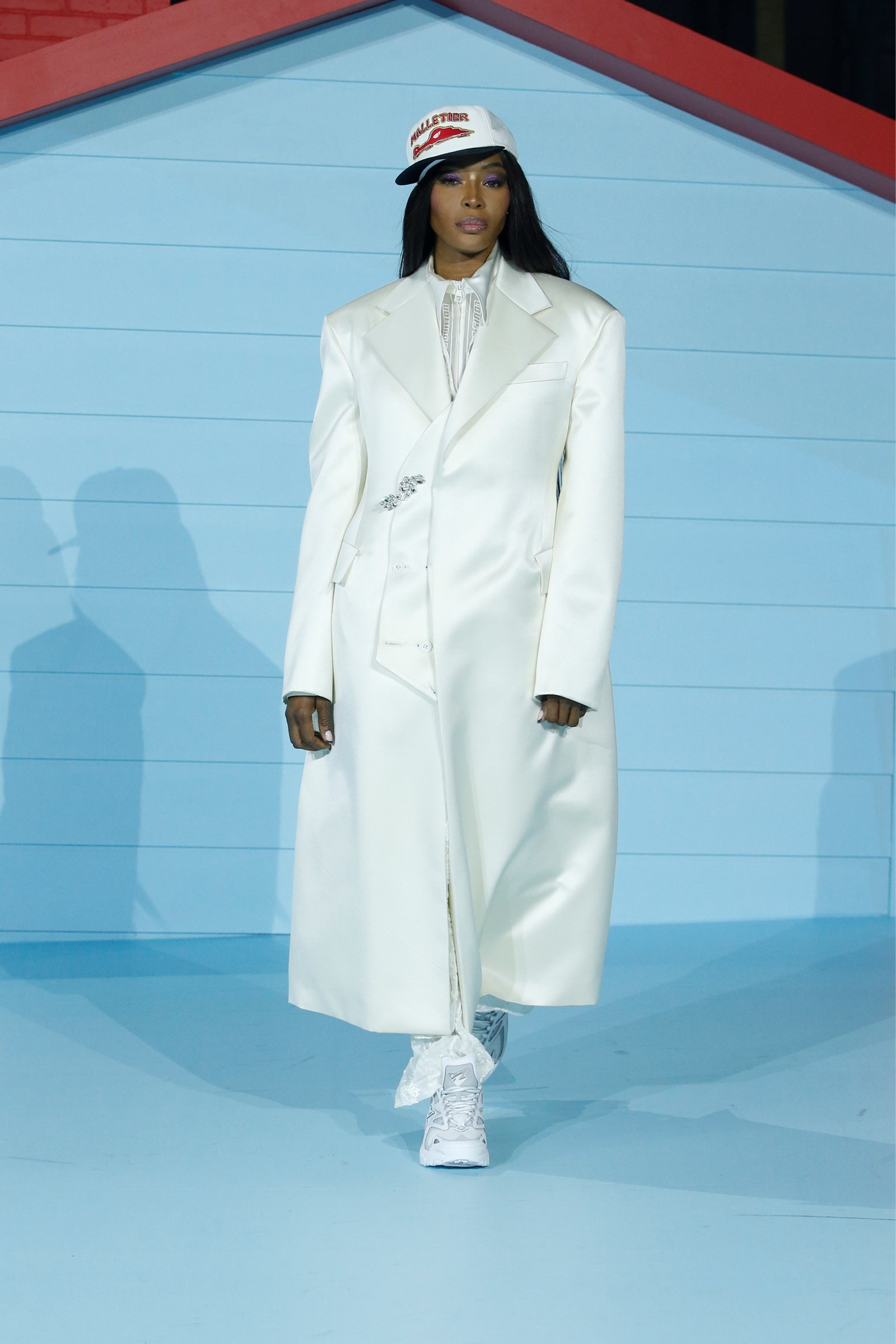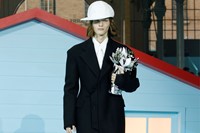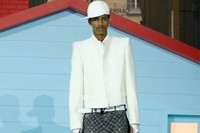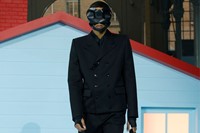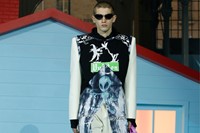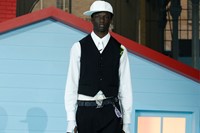Commemorating a life, a talent and a seismic impact on 21st-century fashion and culture as a whole, the Autumn/Winter 2022 Louis Vuitton menswear collection was the last devised by the label’s late men’s artistic director Virgil Abloh. He, of course, wasn’t able to see it fully realised – he passed away in November last year. His emotional Vuitton team took a collective bow, embracing the show’s models, as they completed this vision of his final collection, and first fully-fledged Paris show since various lockdowns commenced.
Titled “𝓛𝓸𝓾𝓲𝓼 Dreamhouse™”, this collection became the culmination of Abloh’s tenure at Vuitton, of eight shows marked by a sense of playful wonder, a paradoxical combination of naivety, spontaneity and child-like joy – branded, in a typical Abloh-ism, as “Boyhood Ideology®” – with the superlative, seemingly inexhaustible skills of a French luxury-goods house. Coupling those two together resulted in ideas that had never been seen before: a Louis Vuitton bag as a carrot, or a monogrammed plane, alongside a three-dimensional recreation of Notre Dame crafted into a bomber-jacket. If Abloh could dream it, Vuitton could LV it. As his show notes stated, “Virgil Abloh defines the Boyhood Ideology® as the unspoiled outlook of a child, who is yet to be affected by the preconceived ideas of society. He wants to reset our preordained perceptions and start from scratch where clothes are clothes and humans are humans.”
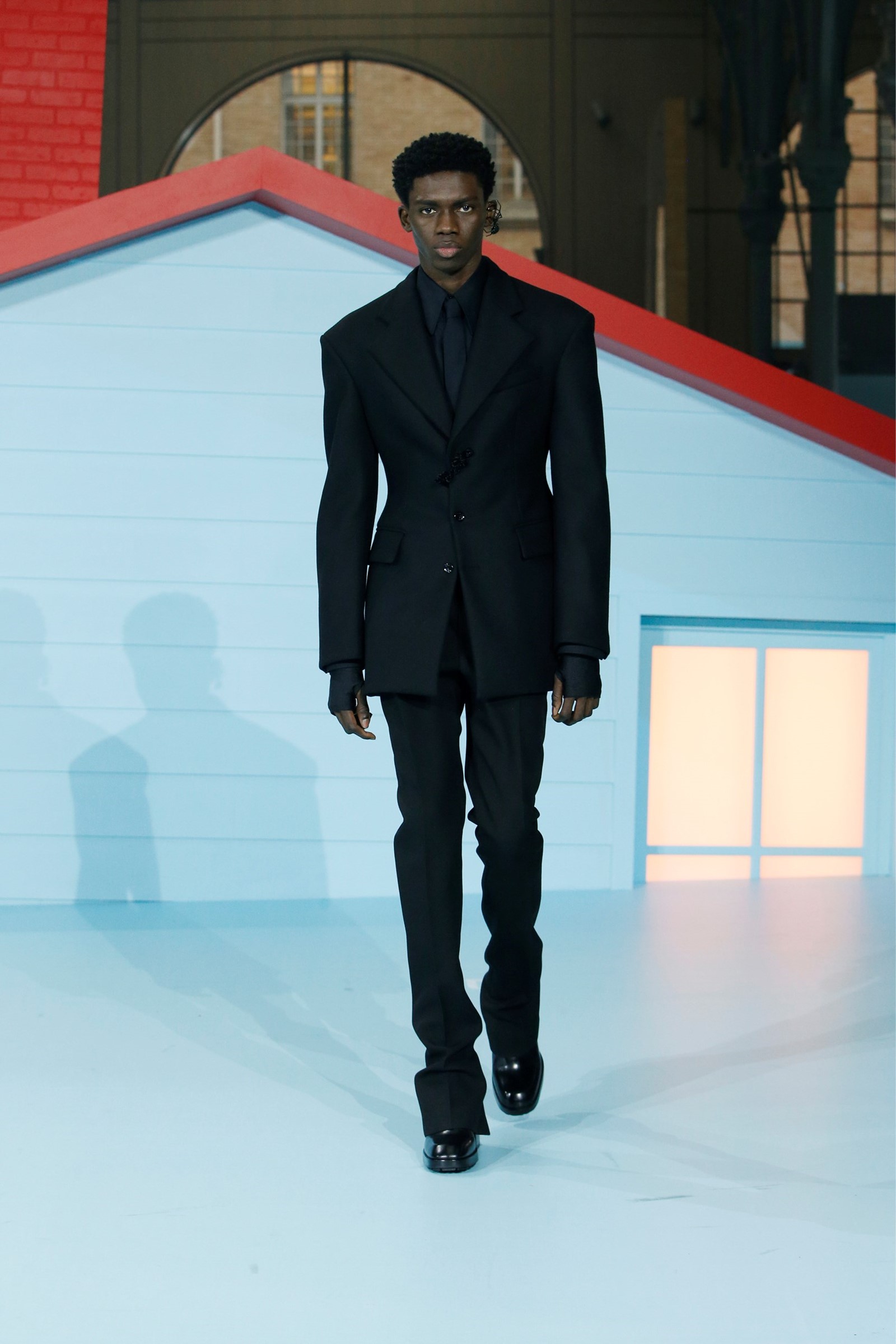
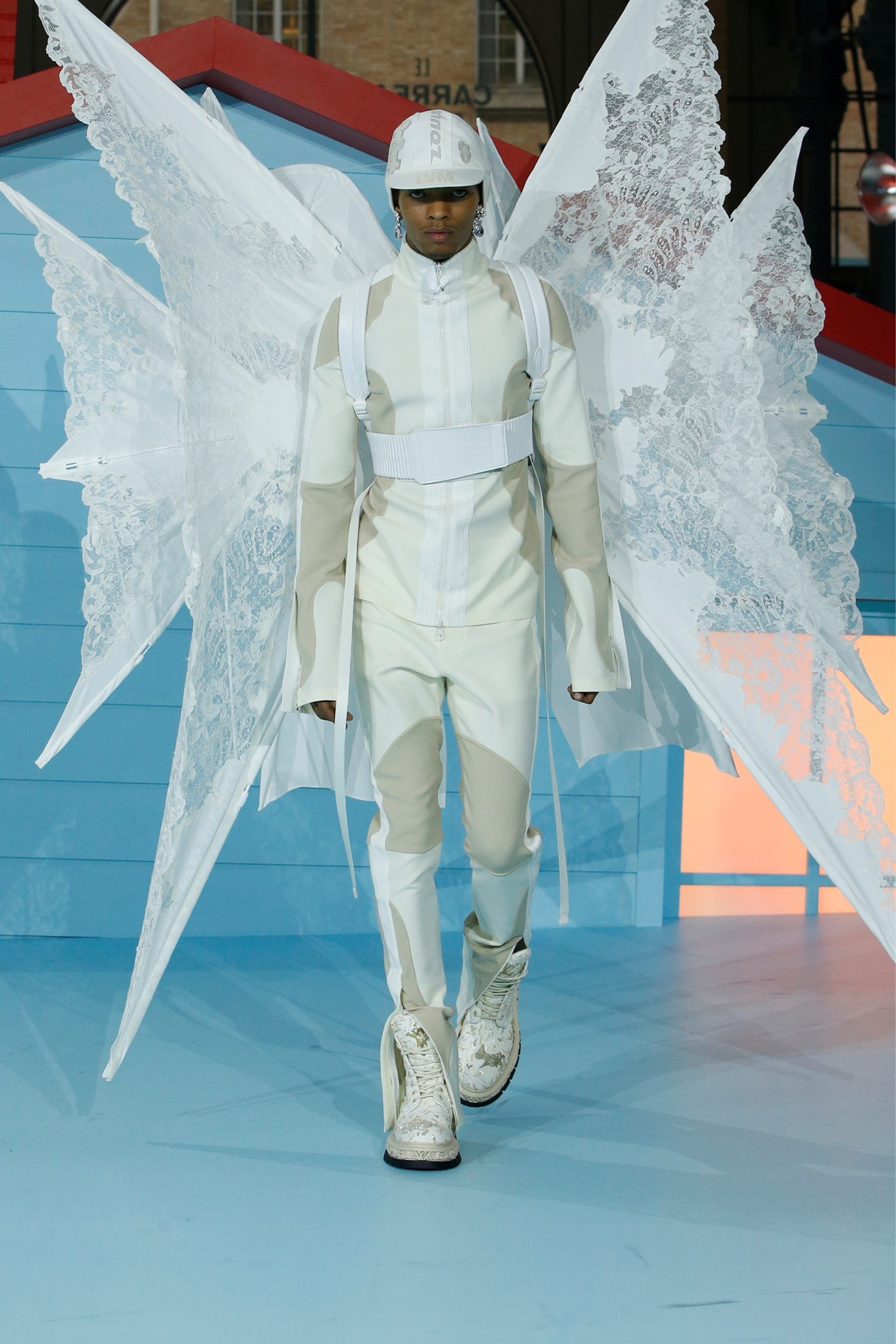
Rather than a sombre feel, this collection was joyous – a commemoration, sure, but also a celebration. In a setting saturated in a fantastical sky blue sat a bunch of different vignettes: a staircase to heaven, a bed, a table laid for dinner at which a diverse orchestra played live. Apparently, Abloh always wanted an orchestra to play live when he could recommence physical shows for Louis Vuitton. Here, he got that wish.
The clothes themselves were wildly varied, demonstrative of Abloh’s unfettered imagination, his roaming influences. Some, oddly, touched on themes and ideas he had explored before: of course, there were reiterations and reimagining of Vuitton’s logos, both Monogram and Damier checks, his reworking of tailoring, twisted, recoloured, rethought, and his pictorial sweaters, knitted like vistas taken from his mind. But there were also more specific references: his first campaign in 2019 recreated Gustave Courbet’s 1855 work The Painter’s Studio – for this collection, it was reinterpreted as tapestries. Almost as if this collection brought us full circle, back to the initial excitement and possibilities of Abloh’s debut only four years ago.
It was, in itself, a closing of that circle, of a cycle, a retrospective of sorts, and certainly a reconsideration of Abloh’s body of work for Louis Vuitton. More than anything else though, with its finale of all-white outfits – the last look seeing the kite-kit invitation from Abloh’s Spring/Summer 2020 show seemingly reconfigured to form abstract angel wings – it seemed a heartfelt and loving tribute to the soaring vision of the man who conceived it all.
